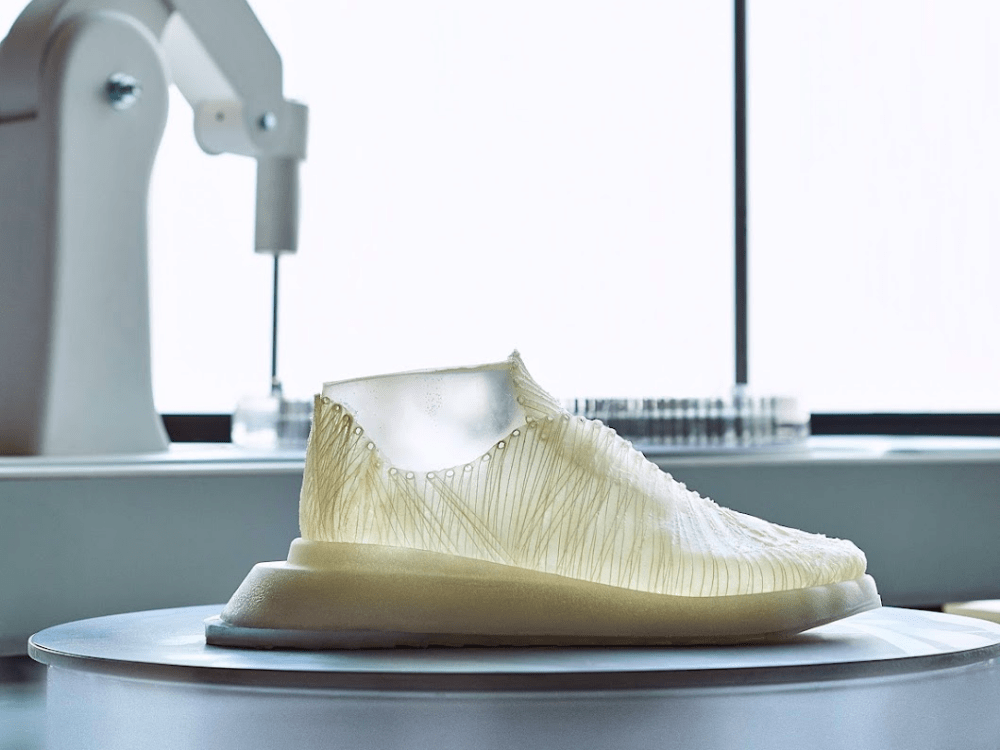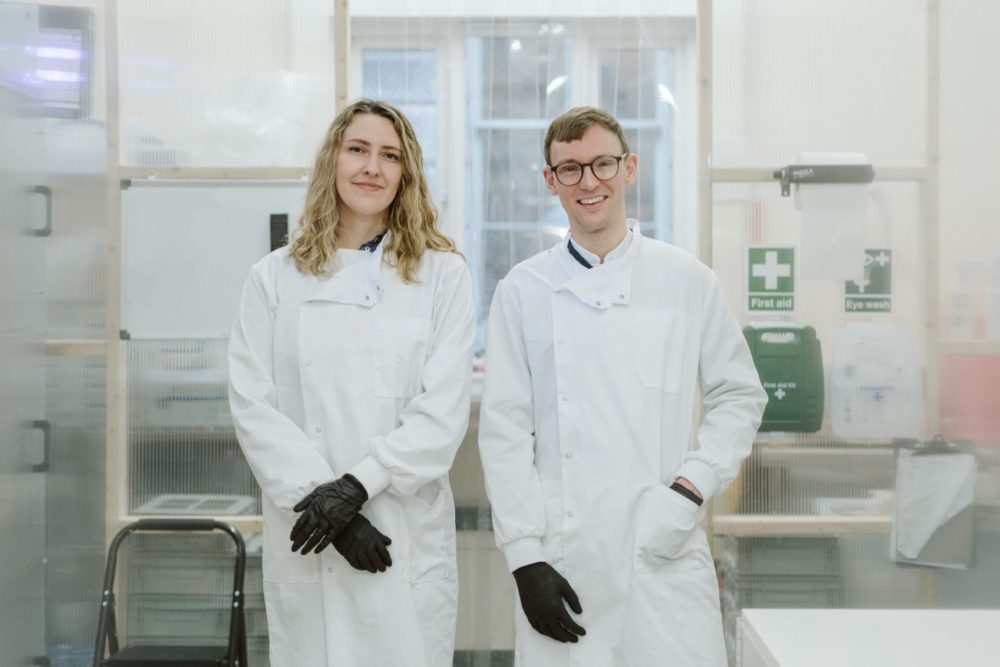Disclosure: AFN’s parent company, AgFunder, is an investor in Modern Synthesis.
UK-based biomaterials startup Modern Synthesis has raised $4.1 million in seed funding to support its microbial textile platform that aims to make the fashion industry more sustainable.
Investors in the round include AgFunder, Collaborative Fund, Acequia Capital, Petri Bio, Ponderosa Ventures, Possible Ventures, IMO Ventures, Taihill Venture, Parley for the Oceans, Climate Capital Collective, and former Jimmy Choo CEO Pierre Denis.

How it works:
Modern Synthesis’ microbial textile tech leverages bacteria to transform sugar from agricultural waste into nanocellulose, a biodegradable material valued for its abundance and its strength. The goal is to replace animal- and petrochemical-derived materials, helping the fashion industry lower its carbon footprint.
- The startup’s “microbial weaving” process mimics the warp-and-weft technique of traditional weaving to create a customizable biomaterial in roughly 10 to 14 days.
- Staff at Modern Synthesis create a scaffold, using robotics to place fibers in the desired shape or structure. Genetically modified bacteria grow around those structures to create the final material.
- Similar to 3D printing — and unlike traditional weaving — pieces can be designed to shape, which means no scraps of leftover material and therefore no waste.
- So far, Modern Synthesis has been able to build the upper part of a shoe using this process. The company says it has delivered its materials to a “key sportswear customer” for prototyping.
- It plans to eventually leverage microbes to displace a variety of animal- and petrochemical-derived leathers, textiles, and films.
Why it matters:
Instead of trying to create an exact replica for a material like leather, Modern Synthesis says it is focused on developing an entirely new kind of material – and in the process, build out an entirely separate category for materials.
“What we’re trying to do is build this new class of materials that is more sustainable but also allows us to design and create in new ways, which is really exciting for the fashion industry,” Modern Synthesis co-founder and CEO Jen Keane tells AFN.
The startup is one of a few trying to create this “new class” of materials. New York-based Bucha Bio said much the same thing in 2021 about its leather-like biotextile made by fermentation, and MycoWorks recently bagged $125 million in Series C funding to further develop its fungi-based leather alternative [disclosure: AFN‘s parent company, AgFunder, is an investor in MycoWorks.] Keane previously spent time as a creative resident at another well-known biomaterials startup, Bolt Threads.
That said, a 2021 report from the Material Innovations Initiative (MII) found that even if the biotextile space hits its projected $2.2 billion market by 2026, it will still only represent about 3% of the materials market – with 69% animal-based materials and petroleum-based items making up the rest.
Beyond demand, one of the biggest challenges facing the market is a lack of supply. “There are currently more interested investors than suitable investment opportunities,” said MII’S report.
That presents a fairly wide window of opportunity for companies like Modern Synthesis – and a new way for brands to think about sustainable clothing.
The bigger picture:
Modern Synthesis isn’t just focusing on alt-materials.
“At the end of the day, we’re trying to build a circular manufacturing system with these microbes,” says Keane. “That enables us to leverage agricultural waste and use the microbes as manufacturing units and transfer them into more viable materials. On the flip side, we see the opportunity to have new-class materials that are fully cellulosic, so we can recycle them back into silos and recycling streams.”
More than 70% of the fashion industry’s greenhouse gas emissions come from upstream processes such as raw material production, preparation, and processing.
How it’ll spend the funding:
Most of Modern Synthesis’ seed capital will go towards building its pilot facility, which will allow the company to make more materials.
- The planned site in London will house a lab, as well as sampling and pilot production capabilities. It’s on track to being operational by Q3 2022.
- The funds will also enable the company to build its team simultaneously to increasing capacity.
“Our goal is to get these materials out in the world as quickly, widely, and responsibly as possible. And to do that, we need to leverage as many R&D resources as we can to speed up that process,” says Keane.





